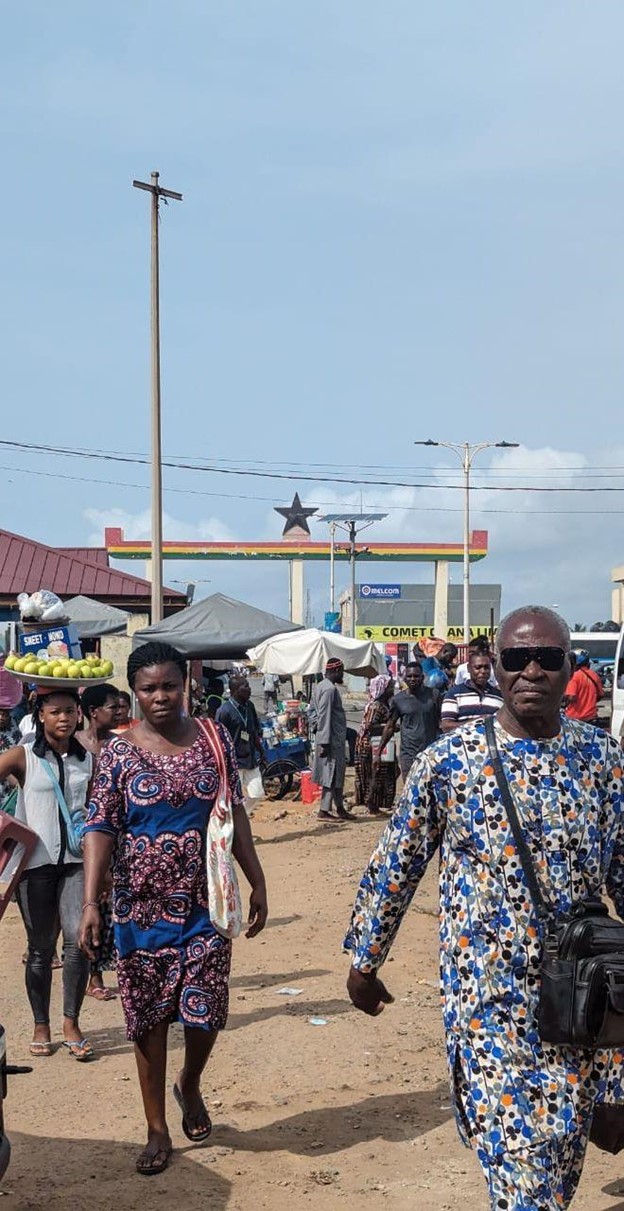The smooth flow of goods across the Lagos-Accra corridor, a crucial artery for trade between Nigeria and Ghana, is being hampered by multiple police checkpoints and demands for bribes by Customs officials.
This situation impedes economic growth within the Economic Community of West African States (ECOWAS) sub-region, where travel for citizens has been visa-free for more than two decades.
It also threatens to undermine a key bloc within the African Continental Free Trade Area (AfCFTA), which aims to create a single market for goods and services across the continent.
A driver for a transportation company that plies the route, who spoke on condition of anonymity to the B&FT in December 2023, revealed that he is typically given ₦400,000 (approximately US$510 at the time) by his company just for a trip from Lagos to Accra.
“This is a huge burden for us, and it ultimately translates into higher prices for consumers,” he said – noting that the sum amounted to more than 25 percent of a two-way ticket’s cost for occupants of a 12-seater bus.
The issue is particularly prevalent on the Nigerian side of the border, he said. This correspondent counted 31 checkpoints on the road from Jibowu in Lagos to the Nigeria-Benin Republic Seme Border, and 23 between the Aflao border and Miotso – a figure that was corroborated by a businesswoman who regularly transports goods between the two countries.
“Ghana and Nigeria share a historic sibling rivalry, and now it looks like we are competing to see who is the most corrupt,” the businesswoman added.
The consequences of this entrenched corruption are far-reaching. Delays at checkpoints add hours to travel times, increasing transportation costs and impacting the competitiveness of businesses. This ultimately discourages trade and inhibits economic growth in the region.
Train, train come our way
Trade experts believe that a modern train system along the Lagos-Accra corridor could offer a potential solution. Trains offer a faster and more secure mode of transportation, potentially reducing opportunities for corruption and facilitating the movement of goods.
A train system would be a game-changer for trade in the region. It would reduce travel times, lower transportation costs and create a more efficient and transparent system, experts say.
It would cut the travel time from a minimum of 10 hours – which sometimes extends beyond 15 hours due to arbitrary delays – to potentially less than three hours.
However, building a train system requires significant investment and political will from both countries – factors which have been glaringly lacking. While authorities in both countries have repeatedly acknowledged the problem and pledged to take steps to address it, progress has been slow; and many remain sceptical that the issue will be resolved anytime soon.
For context, the 157-kilometre Lagos-Ibadan standard gauge railway project was commissioned in 2021 at an estimated cost of US$1.5billion.
Last year, Chief Executive Officer-Ghana Railway Development Authority (GRDA), Yaw Owusu, said Ghana would need an estimated US$30billion to build about 4,000 kilometres of rail network across the country. Conservative estimates of the 464 kilometres (288 miles) Lagos-Accra route range between US$4.1 and US$7.4billion.
The need for a train system is echoed by many businesses and individuals who are frustrated by the current situation.
“The issue of checkpoints, and even state of the roads, is making it very difficult for us to compete in the global market. We are calling on governments to take action and create a more conducive environment for trade. A train system is non-negotiable at this point… It would mean we could get our goods to market faster and cheaper, and it would also help to reduce corruption,” a domestic manufacturer remarked.
Mind the gap
The situation on the Lagos – Accra corridor is a microcosm of challenges facing trade within the region
West African participation in global trade remains relatively limited, whether for coastal or landlocked nations. Intra-regional trade currently constitutes less than 10 percent of each country’s total trade, according to UNCTAD.
Systems such as the Inter-State Road Transit (ISRT) system, designed to facilitate trade, are not operating optimally – despite its potential to yield significant benefits for countries such as Benin, Burkina Faso and Niger.
Furthermore, a survey conducted by the International Finance Corporation (IFC) and World Trade Organisation (WTO) on trade finance within the four largest economies of the sub-region – namely Nigeria, Ghana, Cote d’Ivoire and Senegal (referred to as the ECOWAS4) – estimated the trade finance market’s overall size in these countries was US$42billion in 2021.
However, this amount only accounted for approximately 25 percent of merchandise trade in the four countries. This figure falls significantly below the prevailing estimates for Africa, which suggest a trade finance coverage of about 40 percent – and even further below the levels observed in advanced countries, ranging from 60 to 80 percent.
Outcomes of the survey indicate a substantial trade finance gap between supply and demand within the ECOWAS4, amounting to approximately US$14billion annually.
In a hypothetical scenario where the coverage of trade by bank-intermediated trade finance increases to the African average, and fees and spreads are reduced to international benchmark levels, the IFC and WTO project an annual 8 percent growth in ECOWAS4 trade in goods, equating to an additional US$13billion.










